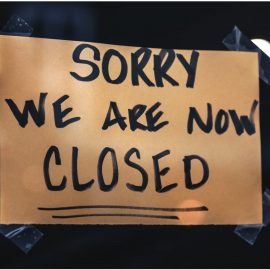

This article is an excerpt from the Shortform summary of "The Challenger Sale" by Matthew Dixon and Brent Adamson. Shortform has the world's best summaries of books you should be reading.
Like this article? Sign up for a free trial here .
What are the challenger selling skills? Why do these skills matter? What makes the best sales reps?
The Challenger selling skills are why Challenger sales reps succeed. Challengers have a certain set of natural skills that they apply, and they also use specific Challenger Selling skills to excel in a solution-based sales environment. Find out more about these skills below compared to other types of sales reps, and why Challenger Selling works.
There are Five Types of Sales Reps
Researchers determined that sales reps fit one of five profiles, each dominated by distinct skills and behaviors, among them, the Challenger sales skills.
- Hard Worker (21% of the sample)
- Relationship Builder (21%)
- Lone Wolf (18%)
- Reactive Problem-Solver (14%)
- Challenger (27%)
Every rep in the study had at least a baseline level of the 44 attributes tested. But nearly every rep also had a specific cluster of attributes that defined their sales approach (akin to having a major in college but also completing a core curriculum). Pay attention to the Challenger Selling Skills compared to the others.
The Challenger
- Likes to debate
- Understands the customer’s business
- Isn’t afraid to share her views even when different or controversial
- Assertive—pushes customers on their thinking and on issues like pricing
- Pushes leadership to see things from a different perspective and to rethink strategy
The Hard Worker
- Arrives early and stays late
- Willing to put in extra effort
- Self-motivated
- Doesn’t give up easily; makes more calls and visits than anyone else
- Interested in feedback and development
- Follows the company’s sales process
The Relationship Builder
- Creates strong, often long-term relationships and allies throughout the customer organization
- Is generous in giving time to help others
- Works hard to meet customers’ needs
- Offers the customer accessibility and service
The Lone Wolf
- Supremely self-confident: follows her own instincts instead of rules
- The prima donna of the sales force; does things her way or not at all
- Drives sales leaders crazy by not following processes
- Does well despite flouting the system
The Reactive Problem-Solver
- “A customer service rep in sales rep clothing”—she has plans to generate new sales but gets sidetracked to fix customer problems instead of referring them to customer service people (at the expense of generating more business)
- Reliable
- Detail-oriented
- Ensures that all promises made as part of a sale are kept
- Follows up to ensure that service issues are addressed quickly and effectively
Why Challenger Skills Matter
Challenger selling skills drive sales success because they dovetail with what research has shown customers want most.
CEB research shows that the most important thing to customers is the sales experience—not the product, service, or price. Customers want to learn something in the sales interaction more than they want to buy something. They want insight into how to cut costs, make more money, and reduce risk. The experience is one of the Challenger selling skills that helps them succeed.
Therefore, customers value reps most who:
- Offer unique and valuable perspectives on the market
- Help them navigate alternatives
- Provide advice
- Help them avoid potential problems
- Educate them on new issues and outcomes
Customers are saying to reps, “Tell me something new about my business”—which essentially defines the Challenger sales skills and their approach.
Challenger skills can be learned.
Challenger sales skills can be learned. Rather than committing the time and expense to replace an entire sales force with “natural” Challengers, companies are better off training current reps in new skills and behaviors. Every rep in the study employed Challenger behaviors to a degree; reps can learn to fully implement them. The experience of the test companies proved that Challengers can be created. If you’re a sales rep, you can close the gap between your current skill level and the Challenger model.
The skills must be applied in combination.
While companies may be tempted to skip components of the model, the Challenger sales skills—teaching, tailoring, and taking control of the conversation—are most effective when used in combination. Implementing the full model is the only way to realize the tremendous performance gains it offers.
Reps who teach without tailoring their message to the recipient will sound irrelevant. Those who tailor without teaching will sound no different from their competitors. Those who take control without teaching something of value will irritate the customer.
The good news is that Challenger selling skills can be taught. The Callenger Sale explains all the Challenger selling skills in detail, and how you can work to gain those skills yourself.

———End of Preview———
Like what you just read? Read the rest of the world's best summary of Matthew Dixon and Brent Adamson's "The Challenger Sale" at Shortform .
Here's what you'll find in our full The Challenger Sale summary :
- Why the best salespeople take control of the sale and challenge the customer's thinking
- How to package your company with a key insight to spark an "a-ha" moment
- How to get the organizational support you need to maintain your sales edge






